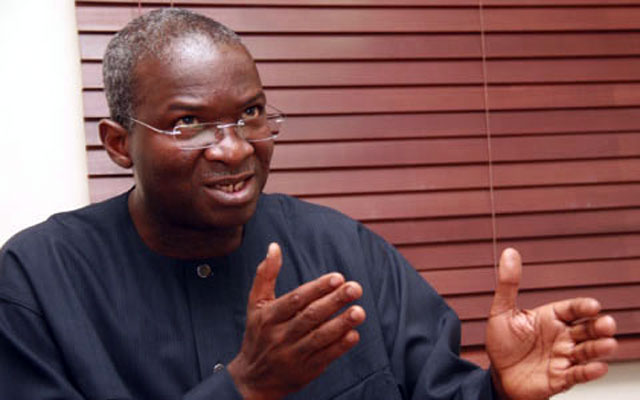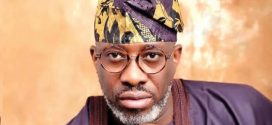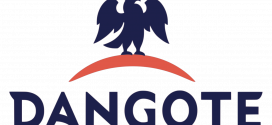It is fit and proper to start by expressing my appreciation to my host, Professor Olanrewaju A. Fagbohun, SAN, the Vice Chancellor and by extension the LASU university community, for inviting me to speak at this RESEARCH FAIR AND ENDORSEMENT OF RESEARCH GRANTS FUND.
The theme of conversation is “Driving National Development through Research and Innovation” as chosen by the DIRECTORATE OF RESEARCH MANAGEMENT AND INNOVATION.
I consider it eminently well- conceived at this time when we are confronted with several choices about what to do, to overcome our developmental challenges and what to do in order to propel ourselves to the Nigeria of our collective dreams.
Let me say that I entertain no doubt about the possibilities and promise that lie ahead of Nigeria.
The question therefore for me has never been whether Nigeria will fulfil and realize her promise; on the contrary the question has been when it will happen.
Therefore, I have always held the view that there is nothing wrong with Nigeria; and that what perhaps has been wrong, are some of the things we have done or failed to do, and when we have done them or failed to do them.
In other words, what has or have informed our decision making or choice making processes, have we measured the impact or consequences of what we have done or failed to do?
Have we monitored how our choices have impacted our journey of national development?
This is the context in which I seek to speak about “Research” and “Innovation” which is the theme of this research fair.
What is “Research” and what is “Innovation”?
These are the opening questions I pose and seek to answer; and by so doing, I hope to link them to our national development and hopefully relate them to a few cases of study and conclude with my own humble recommendations.
The Oxford Advanced Learner’s Dictionary defines “Research” as:
“a careful study of a subject …in order to discover new facts or information about it.”
And “Innovation” as:
“the introduction of new things, ideas or ways of doing something…”
With these working definitions, I will proceed to make a connection between research, innovation and national development; by reference to some things that we all know.
We all know that All Progressive Congress (APC) and President Muhammadu Buhari won in 2015 by defeating an incumbent president in an unprecedented election.
Has any university or research institution conducted a research (published); that is a “careful study” of why Nigerians voted for President Buhari’s message of:
a) Tackling Insecurity
b) Growing the economy
c) Fighting corruption?
I have chosen to start with our democracy and election, because they have consequences on national development.
I know of no published work by any Nigerian university that answered the question. But I know how President Buhari came up with that message.
The answer is simple. The APC when it was formed chose to innovate.
In other words, as shown from our definition, APC chose to introduce a new thing or idea or way of doing something – contesting an election in Nigeria.
APC chose to research, that is, to conduct a careful study of a subject, our election. I was involved in the process at a very high level, as chair of the Strategy Committee in 2014. We commissioned a study of what the Nigerian people wanted.
We used a sample size of 20,000 people and administered 60 (sixty) questions to each person on a questionnaire in face to face interviews.
It took months, and cost money, (and I will come to this later because this is not only a “Research Fair” but also an Endowment of Research Grants Fund) but the rewards of success at the election more than justified it.
The outcome of the research showed that majority of those interviewed were not happy about:
a) Security in the country (Insurgency and Bombing)
b) The economy that was said to be growing and leaving people behind (jobless growth)
c) The way issues of corruption were being handled.
Working with data analysts, we used the data from questions 1,200,000 (60 x 20,000) to craft an electoral message that responded to the front burner considerations of the electorate.
This is one example of research and innovation in relation to national development.
The other examples I will share relate to events in Lagos.
They are Oshodi Clearing; and the Lekki Expressway Toll Plaza contrasted with the Lekki Link Bridge Toll Plaza.
OSHODI
Many commuters around the Oshodi Area would remember how difficult it was to commute through the area.
Those who needed to use the airport had become accustomed to leaving home many hours ahead than was necessary, only because the traffic and commuting experience had become a nightmare.
The Lagos State government under my tenure was committed to solving the problem.
We sent a study team there to ascertain the cause of the gridlock.
We found that it was about 500 traders who chose the rail line as their market that were largely responsible for the problem.
They come from many states within Nigeria and from outside Nigeria.
Pedestrians crossing the Agege Motor road were also an impediment to free flow of traffic.
The impact of the gridlock was not limited to commuters, it affected property owners in the nearby Ikeja GRA, whose property values were diminishing and some of who were relocating to other parts of the state.
The gridlock also affected;
1) Healthcare
a) Because there was high carbon mono-oxide Pollution from vehicular fumes causing upper respiratory tract infections;
b) Improper waste management led to vector settlements of rats and roaches who transmitted disease;
2) Safety
a) Because the large static population led to high crime incidents of robbery, rape, assault and sometimes murders;
Our study results recommended:
a) Relocation of the traders, so we built a new market in Isopakodowo
b) Separation of pedestrians from motorists so we built a new pedestrian bridge
c) Crime deterring aids, so we installed street lights in Oshodi
The results were transformative.
a) Traffic moved
b) Crime rates dropped when we checked with the Oshodi Police Station and compared incidents before and after
c) Property values steadied and rapidly rose in GRA Ikeja as reported by estate valuers
d) Incidents of vector borne diseases reduced as reported by our teaching hospital LASUTH.
People wondered aloud how we achieved such a feat where no gun shot was fired or life lost or indeed anybody injured.
The answer is simple, we researched and we innovated. Again, it took time and cost money but it led to development.
And please bear in mind that I am not aware that any university has published any results of research on Oshodi before and after we intervened.
LEKKI EXPRESSWAY AND LEKKI LINK BRIDGE TOLL PLAZAS
Not a few will recall that the Lekki Expressway was in some state of disrepair before 2007 when the Lagos State government chose to reconstruct the 60km highway using private sector funds and concessioning the road.
This was itself innovative because that made it the first government owned road to be funded by private capital in West Africa.
There was also some study, which meant that innovation accompanied research. But one item that was probably not studied at all or enough was how people will react to the payment of tolls.
I say this because, there were town hall meetings with the residents and I recall there were town hall meetings held at the Lagoon restaurant and in the Governor’s office involving some property owners and chieftaincy families along the corridor.
They received the project information enthusiastically but we never discussed how much the toll would cost and their willingness to pay.
Needless to reiterate, the protests that greeted the commencement of tolling have now been well documented to bear repetition.
It was a useful lesson that served us in good stead when the Lekki Link Bridge tolling was commenced a few years later.
While the Lekki Link bridge was under construction and nearing completion, we commissioned a study about people’s willingness to pay and how much they were willing to pay.
The results informed the pricing of the toll and when the bridge opened there was no protest about the cost.
As you probably all know, the bridge has become a favourite destination for pedestrians and vehicle owners alike.
Our study showed amongst others that the crossing from Lekki to Ikoyi took 3 minutes approximately to traverse, without traffic if you use Link bridge, and over 20 minutes if you went through Falomo to the same point where the bridge lands on Alexander Avenue Ikoyi.
These are just a few examples of research and innovation in the Transportation sector of national development, –
There have been others in my time in government, such as
a) The cost of Electric power using generators as compared with taking power from DisCo;
b) The number of vehicles traversing various highways in Nigeria;
c) The difference in journey and travel times on major highways before and during the Buhari government intervention on road infrastructure and
d) The type of housing that Nigerians in different states will accept to live in, to mention a few.
I must not fail to mention the selfless work of Professor Olumide Olusanya whose research and Innovative recommendations led to the creation of the MUSON under pass at Onikan to relief traffic.
But I will proceed to now raise questions about innovation and research in other areas of our compelling national challenges;
a) Security
b) Health
c) Education
d) Economy
Why is there no published research about the pattern and morphology of our security challenges with results offering different solutions and new ideas by way of innovation to overcome these challenges?
Why have all the experts focused only on law enforcement capacity and resourcing, which are important?
Has its occurred to us that we are not just dealing with crime but with organized crime?
Has it occurred to us that our security challenges are providing vast economic rewards for those who organise to hurt us and that there is a lot we can do to support government and protect ourselves?
I have just completed a paper on this subject which I will publish soon.
Have we commissioned any study about the decade long industrial disputes in different parts of the country and how they affect:
a) Health care delivery
b) Education quality
c) National productivity and our economic development?
There are vast areas of activity for research and innovation which I commend for consideration.
This is what many universities do across the world and these are Thesis subjects for the award of degrees and very valuable data from which universities raise money by selling the data to private and public institutions.
This is how knowledge centres (like universities) contribute to national development, and as they say, this is how the gown meets the town.
We have heard statements from unverified data that:
a) Nigeria has a 17 million housing deficit
b) Nigeria has 10 million children out of school
c) Nigeria has a 200 million population
While there are challenges with housing supply, is the problem the same in rural and urban centres or only in the latter?
With the 2006 census popularly discredited and judicially annulled in about 11 local governments in Lagos State by the census tribunal, how can these figures be anything more than uneducated guesses or extrapolation?
Yet we seem to have accepted these figures without question.
National development through the provision of adequate facilities, sufficient infrastructure, adequate manpower such as teachers, doctors, nurses and other medical staff will struggle without verifiable data.
As they say, you cannot manage it, if you cannot measure it.
You might be interested to know that while there is a shortage of housing, there are also empty, and unoccupied buildings in almost every major city in Nigeria. Are these factored into the deficit?
How many people in the public and private sector who go to work from 8a.m to 4p.m, a period of 8 hours, actually do 4 hours productive work each day?
How does this affect national productivity and economic growth and what would Nigeria’s story be like if everybody actually worked for 4 hours only i.e. 50% of the contrasted time?
How many of us have taken time to advance the innovative works of Professor Olikoye Ransome-Kuti and Professor Babatunde Fafunwa on primary preventive healthcare and mother-tongue instruction in basic education.
Have we considered the impact on our children, of our mode of teaching by giving instructions, dictating notes by way of their getting used to taking instructions?
Have we studied what can happen if we start teaching them to solve problems by working in groups to stimulate their creativity and stir their curiosity?
Is this connected in anyway with why all of us are waiting for a messiah type leader to tell us how to solve our problems, when we can be the solution if we were trained to solve problems?
Can we study and develop solutions to monitor every item of fertiliser, anti-microbes, and other ingredients used to grow food on each farm?
Can we develop solutions to identify each yam produce; Which day it was planted; When it was harvested; Which farm it came from and the soil component as to make it acceptable for export to and consumption in every part of the world.
Before I go to how to fund research and innovation, let me deal with some specific issues: –
a) Brookings Institute Report on Global Poverty.
Let me be clear that my comments do not suggest that there is no poverty : Poverty is a global phenomenon which every society tries to manage and reduce. But given what I know about India and Nigeria I was curious about the conclusions that “ Nigeria is the Poverty Capital of the World.”
I commissioned some checks on the report and I found out that:
According to World Data Lab’s Poverty Clock, about 90 million people in Nigeria live in extreme poverty. In monetary terms, theWorld Poverty Clock defines poverty as living on less than $1.90 per day. In effect, anyone living on less than N684 is living in extreme poverty.
The Report has been criticized by different countries and experts on the way it measured poverty in terms of earnings-per-day benchmark. The following are some of the limitations of the report as admitted by the researchers themselves.
1. Baseline
In arriving at its conclusion, the Clock used baseline data for 2013 and forecast assumptions. In other words, the report did not take into consideration the economic interventions that have taken place between 2014 and 2015.
2. Basis of the Report
The report also used the General Household Survey from 2012/2013 and not the Harmonized Living Standards Survey. The reason for the adoption of GHS is that “it is more recent and believed to be of higher quality.”
3. Challenges of Estimating Poverty
The report also admitted that “the challenges in estimating poverty in Nigeria stem from the fact that Nigeria is not a homogenous country. There are distinct differences in economic conditions between the South and the North. National averages conceal these differences and surveys are not sufficiently representative at the State level to draw firm conclusions.”
4. Effect of Civil Unrest
The Report also admitted the effect of civil unrest impacted the study. In its methodology it admitted that: “Nigeria has also been suffering from civil unrest and conflict in selected Northern areas where Boko Haram has been active.” Despite the fact that it recognized that: “such unrest will indubitably have a negative impact on poverty,” it downplayed its impact by stating that “…but there is insufficient data to quantify this.”
b) While I was concluding this paper, two (2) reported research results caught my eye which are worthy of mention:
i) On 28th August, 2019, Sky News announced the results published by University College London about Smoking Habits in England over a period spanning 2011 – 2018. It showed that there was a drop of 24.4 % in the number of Cigarettes smoked and a 21.1 % drop in the sale of cigarettes.
These are useful numbers to review the impact of policies made to improve Healthcare and prolong life.
ii) On the same date TVC News in Nigeria announced the result of Research by the University of Jos, of the production of an Anti – Snake Venom from plant Seeds with no Side Effects. This is ground breaking to prevent loss of lives from Snakes bites in that part of the Country where such incidents are reportedly frequent.
c) Finally on this point, I wish to share the Report of a study about Ethnic and Religious division which I commissioned in 2017 and repeated in 2018 at a time, when the conversations about “how divided we were” along these lines were gaining momentum and Restructuring was to be the cure.
72% of those surveyed chose to identify themselves first as Nigerian Citizens, 11% chose their Religious Identity, 9% chose their Clan or Tribe, 5% chose their Regional Identity and 2% chose their ethnic group.
How to fund Research and Innovation
Distinguished ladies and gentlemen, I could go on, but I think I have made the case about the compelling opportunities for research and innovation in our day to day life, without even going into more detailed specialities like medicine, information technology, automobile engineering, to mention a few.
The next question of cause will be how will all these be funded?
The truth is that data gathering, which is the result of studies and research is already a big global business and Nigeria is not left behind.
As I have shown earlier, while in Government, our Government in Lagos commissioned several studies and paid the companies for them.
Although we used several companies, one of them was owned by Idowu Sobowale , a professor from LASU, whose reports helped in decision making during my campaign for the office of governor in 2007 and in preparing our first budget in 2008 based on a study of what the people wanted.
Today, many conglomerates are paying good money to research and data firms for information about consumers to help them stay ahead of their competition.
This is one area of possible funding.
Many of these companies are not likely to be aversed to funding endorsements to fund research; and I recall that during my time the Lagos State Government made a provision in one year’s budget to the tune of N1 billion to fund various areas of research but this was in the last year of my second term.
1. Endowment of Professorial Chair
The time has come to develop framework for healthy collaboration between the gown and the town. Gown in this case being university, and town representing the industry. Universities are factories for ideas, they are centres of innovations and researches. Our universities need to develop products and services that are useful not only for academic pu
 Hottestgistnaija.com
Hottestgistnaija.com





